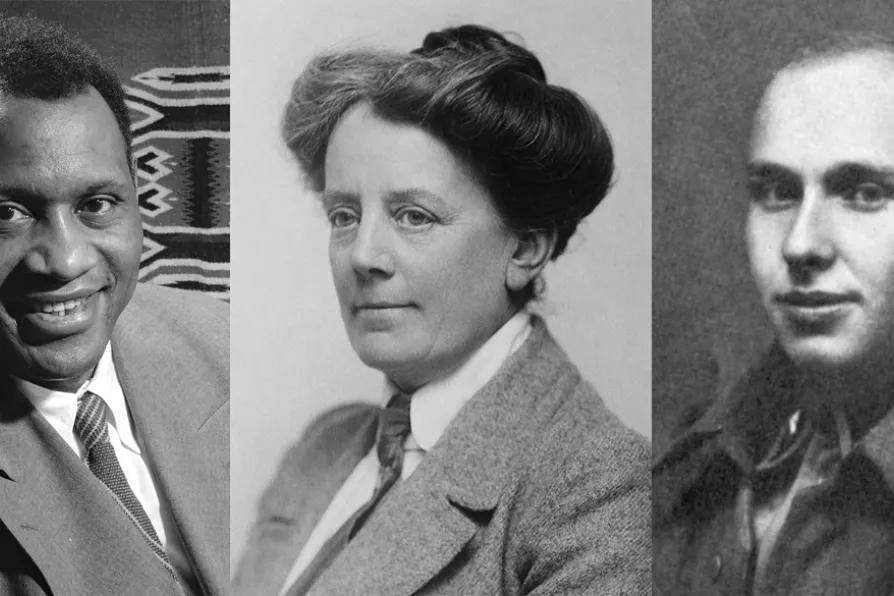RITA DI SANTO draws attention to a new film that features Ken Loach and Jeremy Corbyn, and their personal experience of media misrepresentation

 (L to r) Paul Robeson in 1942, Ethel Smyth in 1922, Eisler in uniform in 1917
[(L to R) Gordon Parks; Library of Congress;Familie Eisler Wien;all Creative Commons]
(L to r) Paul Robeson in 1942, Ethel Smyth in 1922, Eisler in uniform in 1917
[(L to R) Gordon Parks; Library of Congress;Familie Eisler Wien;all Creative Commons]
CULTURE has been a vital element of all classes and cultures throughout humanity. With the development of the working class or proletariat came into being a musical and artistic expression which reflected the character of their existence and was able to express their concerns, highlight injustices against them, as well as find ways to bring their kin closer together through art, culture, or music and song.
Within the 19th century cultural voices and institutions began to emerge, in the form of choirs like Clarion, brass bands, and other groups. Many of these were born out of employers finding a creative outlet for their workers – particularly common among the collieries. Others were born out of cultural outreach from religious institutions like the Methodist church or the Salvation Army. Though this had a creative and cultural benefit, but because of its connection to employers or the church, anti-establishment or general radicalism was likely squashed.
With the birth of the Labour Party, discussions of how culture could be used by the workers began to become more popularised. William Morris’s discussions are quite fascinating as you can see where the concerns and worries were – that working people should have nice things at home, that culture and art are ways to enrich our lives, that bourgeois appreciation of art as art will push art into something only enjoyed by collectors and not by humans.

OLIVER SNELLING, a south London stonecarver and yeoman stonemason, relates how he is helping bring about a new festival next month

CHRIS SEARLE speaks to Ethiopian vocalist SOFIA JERNBERG

BEN LUNN alerts us to the creeping return of philanthropy and private patronage, and suggests alternative paths to explore

JON BALDWIN recommends a provocative assertion of how working-class culture can rethink knowledge










